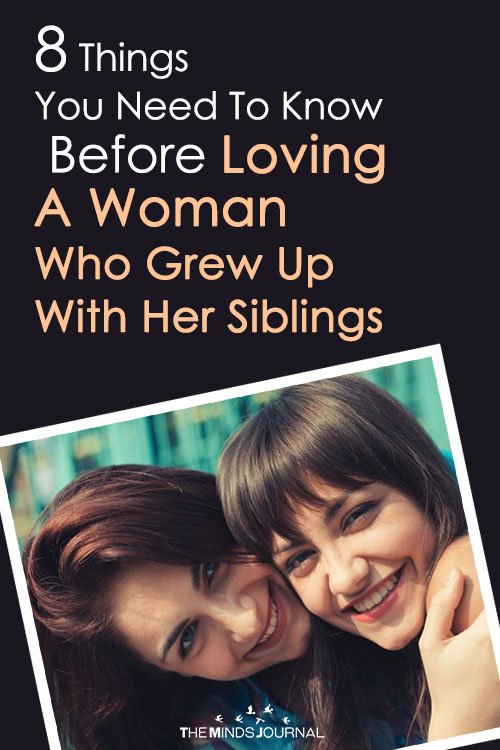They started it!
Sure, meeting the parents is a big deal. Thanks mainly to sitcoms and romantic comedies (lookin’ at you, Greg Focker), it’s a relationship milestone that holds an important place in our cultural consciousness.
But siblings often come along with the whole meet the parents’ territory, and their importance is gravely underestimated. Growing up with siblings means these are the people that helped your partner keep secrets from their parents, and also the ones that probably later exposed those secrets.
They’re the ones she tried to impress, and also the ones she tried to rebel against. They were her closest friends and biggest rivals. And guess what? Not much has changed.
Yes, the bond between siblings is a beautiful thing. It’s also messy, complicated, and, frankly, a little weird. It’s been shaped by a rich history of inside jokes, shared secrets, and blood oaths. (Okay, maybe not blood oaths, but when it comes to siblings, you never know.)
The bottom line is, you may never fully understand what goes down between a woman and her siblings, but if you want to get in on their good side (and trust me, you do), you’re going to have to know a little something about the dynamic at hand.
We may love our siblings and be willing to kill for them, but it doesn’t stop us from sometimes wanting to kill them. And if you’re going to fall in love with someone who is tight with their siblings, there are a few things you need to know.
Especially if you don’t have a sibling since there are some things you can never really understand. Or maybe you’re not super-tight with your brother or sister. Watching them in television shows or in movies isn’t quite the same thing.
Hollywood might understand a lot about people and their psychology, but it can never fully understand these truths about real sibling bonds, let alone explain how exactly you’re supposed to navigate all the fighting, unresolved resentment, and unconditional love that comes with the territory.
1. First of all, fighting is totally normal.
We are siblings. It’s what we do. Just because we fight every once in a while (okay, probably more often than that) doesn’t mean we are horrible people and that there’s something wrong. It’s normal. We’re normal.
And don’t worry, you don’t have to fix it. In fact, better if you just stay out of it.
2. Also, the rivalry doesn’t stop just because we are older.
We might get older and supposedly wiser and while we might grow out of some habits. Well, fighting with our siblings will not be one of them. Don’t worry, we won’t (necessarily) fight with you the same way.
3. Our fights can be calm, cool and collected… or not.
OkAY, let’s be real. Most of them time we fight like 3-year-olds and are pretty darn proud of it.
4. We are the only ones who can pick on them.
We can be mean and fight with them whenever we want, but if anyone else does it they’d better look out. And that means you, too. We will be loyal to you, but we won’t abandon our siblings. And we definitely don’t want to hear you talking bad about our brothers and sisters!
5. There are any number of reasons why we might fight with our siblings and it changes every time.
One time it might be about jealousy, the next about them ruining your plans, and the next moment it can just be because you are bored. There really is no one reason. And even if it’s about you, let us handle it.
6. We would never actually kill them, even if we want to at times.
Sure, there might a few “accidents” here or there such as hand spasms or foot spasms that result in a slap or kick. But those are purely uncontrollable. We would never willingly hurt our beloved siblings.
And even if we are rough with our brothers or sisters, that doesn’t mean we will be with you. Siblings are different!
7. We are just as quick to bail our siblings out as we are to get them in trouble.
Of course, we will always blame our siblings for something we did wrong to our parents. But we are also just as likely to come the second they call to bail them out of jail… not that we’ll ever let them live it down.
And if you become part of our family, that’ll extend to you, too.
8. And while we may fight, we still love them.
No matter what we do, we know that we love each other as only siblings can and that whenever it comes down to it, we will always be there for each other. And that’s a good thing. Just don’t ever try to get in the way of that bond.
Become a Contributor at The Minds Journal
We Want To Hear Your Story. Share your work, thoughts and writings and we will make sure, it reaches the world! Submit Now
Written by Estee Kahn
Originally appeared on Yourtango.com
You may also like
- Here’s What Kind Of Girlfriend You Are, Based On Your Birth Order
- Why the Youngest Siblings Make The Best Adults
- 15 Reasons Why The Middle Child Is Always Likeable
- The Spiritual Significance of Your Birth Order
- Your Birth Order Says A Lot About Your Personality: Find Out Here










Leave a Reply